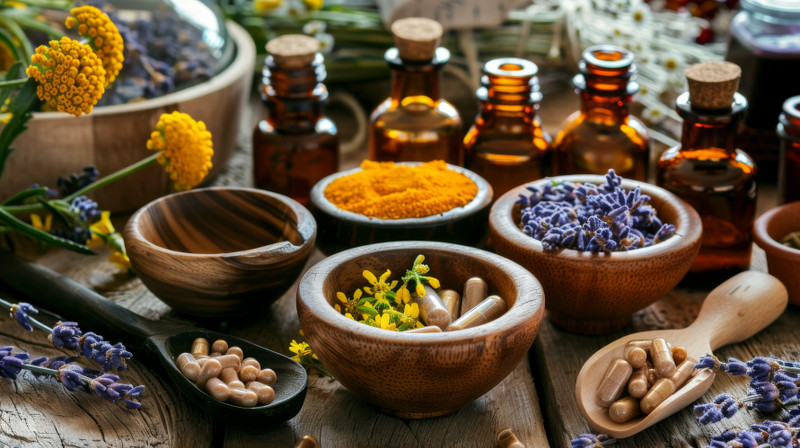Over the last several months we have been offering a continuing series of “Unsung Supplements” in which we explore various natural remedies and some key ingredients you don’t often hear about. Our motto might as well be “What you don’t know could hurt you.” These are supplements, herbs, and vitamins that fly below the radar of public knowledge, yet the use of one (or more) or them might someday bail you out of a health need, predicament, or condition that begs a quick solution.
On we go with another set of five fabulous unheralded natural remedies, in alphabetical order:
Astaxanthin. If you have ever wondered what gives Pacific salmon their pinkish tint, it is astaxanthin, a carotenoid (fat-soluble) pigment that exists in an assortment of other sea creatures to include trout, shrimp, and microalgae. The one health-bearing characteristic that gives astaxanthin its main claim to fame is that it is an antioxidant. That makes it effective in fighting free radicals, enhancing blood flow in the body, as well as reducing oxidative stress. Among astaxanthin’s other potential health benefits are promoting healthy skin and heart, mitigating joint pain such as that linked to rheumatoid arthritis, and enhancing male fertility.
Cat’s claw. The Amazon rainforest is known for being native to this restorative herb which grows on a woody vine and is popular for a number of properties, such as aiding in convalescence circumstances, alleviating health issues linked to degenerative conditions (such as bone disease), and dealing with unwanted forms of inflammation, particularly those related to chronic conditions such as arthritis. Among cat’s claw’s other health-inducing attributes are its prowess for protecting your DNA and repairing that which has been damaged; lowering elevated blood pressure (hypertension); bolstering your immune system; and playing a role in tamping down seasonal allergy symptoms, such as those that are most pronounced during spring’s arrival.
Dong quai. A member of the Apiaceae plant family, Dong Quai is also formally known by its botanical name, Angelica sinensis. Held in especially high regard in the Eastern world, it is native to China and can also be found growing in Korea and Japan. Its use in medical treatment dates back about a couple thousand years soon after the discovery of its ability to essentially nurture our blood while bolstering healthy circulation of our blood. Herbalists long familiar with dong quai also use it to treat patients for conditions such as anemia, arthritis, and constipation. Among its other reported benefits are managing women’s reproductive health, joint pain, dry skin, bone health, digestive health, and headaches believed to have been brought on by stress. Hint: consider keeping some around the house just in case.
Nattokinase. This robust enzyme has its roots in a long-popular Japanese delicacy known as “natto,” which utilizes fermented soybeans. Nattokinase is a “protease” enzyme, more specifically what’s known as a fibrinolytic enzyme. Its stellar role in your body is to break down – inside the intestinal tract – a protein called fibrin, which has an active role in blood clot formation. It’s no wonder then that nattokinase is well regarded for its ability to dissolve blood clots and enhance blood circulation. Consumed orally and best taken on an empty stomach, nattokinase not only can make your blood flow more efficiently and this boost your energy, it can also thwart the buildup of dangerous plaque. Other possible health benefits include enhancing your gut health, strengthening your bones, perhaps assisting in weight loss, and enhancing brain and sinus health.
Passiflora Incarnata. You probably have heard it somewhere referred to by its generic brand name “passion flower,” or what is also known in some circles as “maypop.” Passiflora incarnata is a plant with a variety of health benefits to include treating insomnia, asthma, and narcotic withdrawal. It is probably best known as a means to medicate anxiety. In fact, such use dates back hundreds of years to when early settlers in America made widespread use of it as a sedative and sleep aid. Experts are still studying passion flower to determine how exactly it works, although some evidence already has shown that two of its component flavonoids, chrysin and benzoflavone, apparently function to help alleviate anxiety. Passion flower’s other health benefits reportedly include the capacities to diminish menopausal symptoms and support cognitive health.
So there you have it – another handful of five relatively known natural remedies, each of which provide a vast array of divergent health benefits. As always, be sure to discuss your use of any of these supplements/herbs with your personal physician before adding them to your daily regimen, or even if just trying them out.

